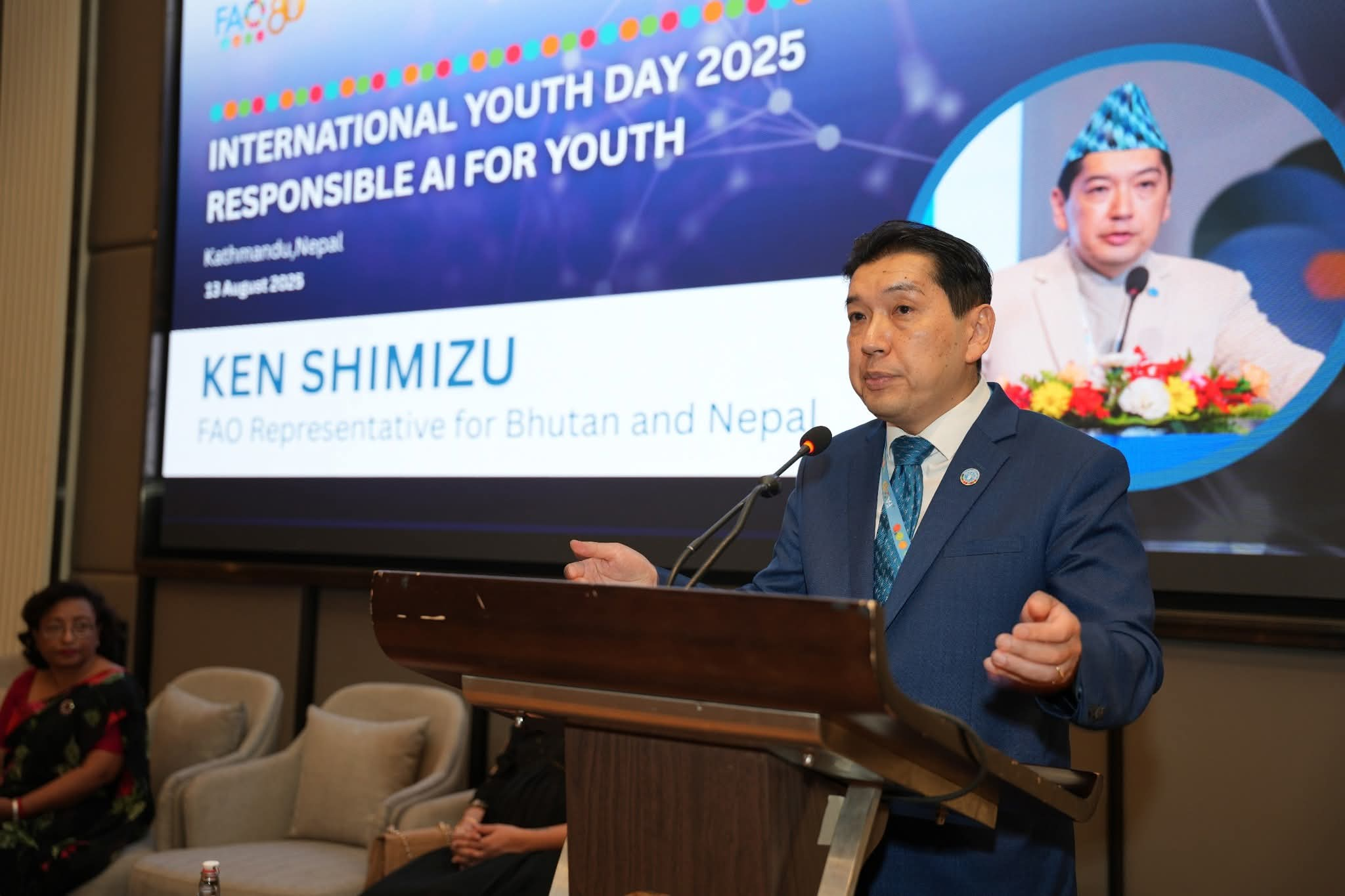Kathmandu, August 14, 2025
A groundbreaking youth initiative has taken center stage in Nepal’s agricultural innovation space, as FAO Nepal, WFF Nepal, and Teach Me AI successfully concluded the "Responsible AI for Youth" Hackathon. The event brought together eleven talented teams from across the country, each tasked with using artificial intelligence to transform agrifood systems while promoting climate resilience and food security.
After days of intense brainstorming, coding, and problem-solving, Krisa.ai - developed by the Advanced Robotics Club from the Advanced College of Engineering and Management - emerged as the winner. Their smart IoT-based farming assistant system impressed judges with its ability to provide farmers with real-time, actionable insights to enhance crop productivity and increase income. The technology integrates AI-driven analysis with field data, enabling precise recommendations on irrigation, fertilization, and pest control - crucial for optimizing resources in Nepal’s climate-sensitive agricultural sector.
Organizers hailed the hackathon as a major step toward ethical, youth-led technological solutions for sustainable development. The competition not only encouraged innovation but also emphasized the responsible use of AI, aligning with the United Nations Sustainable Development Goals (SDGs), particularly those on zero hunger, climate action, and sustainable communities.
“This hackathon has shown that Nepal’s youth are not just technology consumers, but solution creators. By combining AI with agricultural needs, they can drive a more inclusive, resilient, and food-secure future,” said a representative from FAO Nepal.
With agriculture employing over 60% of Nepal’s workforce and being highly vulnerable to climate change, the winning innovation could play a pivotal role in modernizing farming practices, empowering rural communities, and contributing to the nation’s sustainable growth.